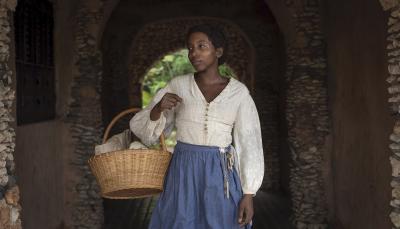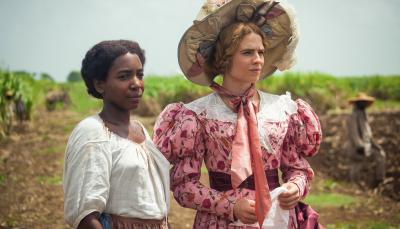'The Long Song' Episode 3 Recap
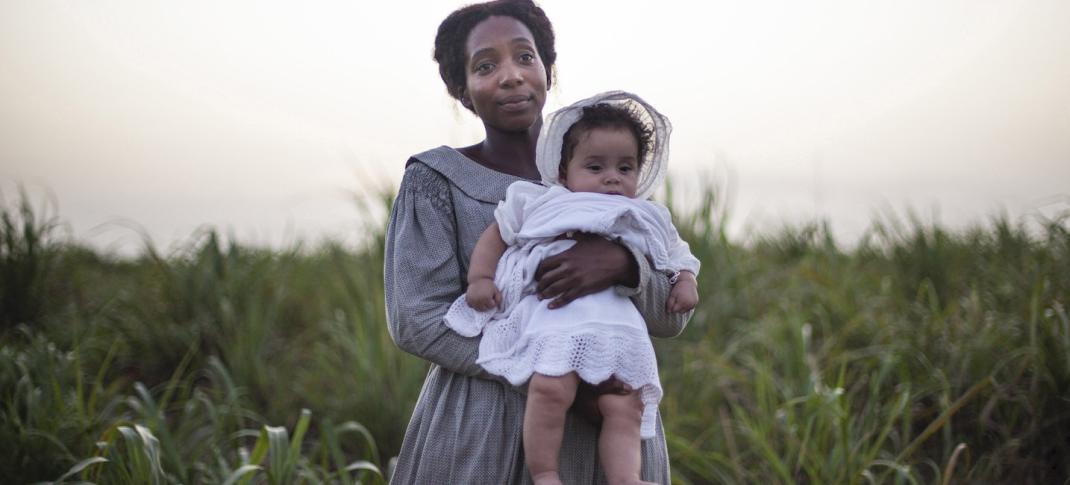
MASTERPIECE “The Long Song" Sundays, January 31 - February 14, 2021 on PBS Episode Three Sunday, February 14, 2021; 10:00 - 11:00pm ET on PBS Facing labor unrest and financial ruin for the plantation, Robert’s sanity starts to unravel, with devasting effects on July. Years later, she makes a remarkable discovery. Shown: July (TAMARA LAWRANCE) For editorial use only. (C) Heyday Television - Photographer: Carlos Rodriguez
WARNING: Use of this copyright image is subject to the terms of use of BBC Pictures' Digital Picture Service (BBC Pictures) as set out at www.bbcpictures.co.uk. In particular, this image may only be published by a registered User of BBC Pictures for editorial use for the purpose of publicising the relevant BBC programme, personnel or activity during the Publicity Period which ends three review weeks following the date of transmission and provided the BBC and the copyright holder in the caption are credited. For any other purpose whatsoever, including advertising and commercial, prior written approval from the copyright holder will be required.
Welcome back to the third and final recap of The Long Song. As the mini-series concludes, Amity Plantation is in chaos. Facing labor unrest and financial ruin, Robert’s sanity unravels and his relationship with July quickly disintegrates. In the end, despite years of hardship and heartache, July is reunited with loved ones once more.
Before getting into the details, let’s set the scene from last week. July and the other plantation workers are officially free, though their day-to-day lives have changed little. Catching the eye of the idealistic new overseer, July sets a plan in motion to improve her station by making Robert Goodwin her husband. He marries the plantation mistress but saves all his loving for July, who not long after gives birth to his daughter. Encountering pushback from his newly freed workers, Robert’s goodwill soon crumbles, putting July’s hopes for a happy life in jeopardy.
As Episode 3 begins, Christmas time has come round again. The sugarcane must be harvested before it spoils, but the field hands are refusing to work over the holiday. Robert’s next move is to double his workers’ rents, thus forcing them to accept a seven-day workweek. He condescends to them that this is for their own good. But when they still say no to his demand, he loses his patience, grabbing the pipe from their spokesman’s hand and smashing it.
As Old July says so eloquently, “One small word, 300 years coming,”
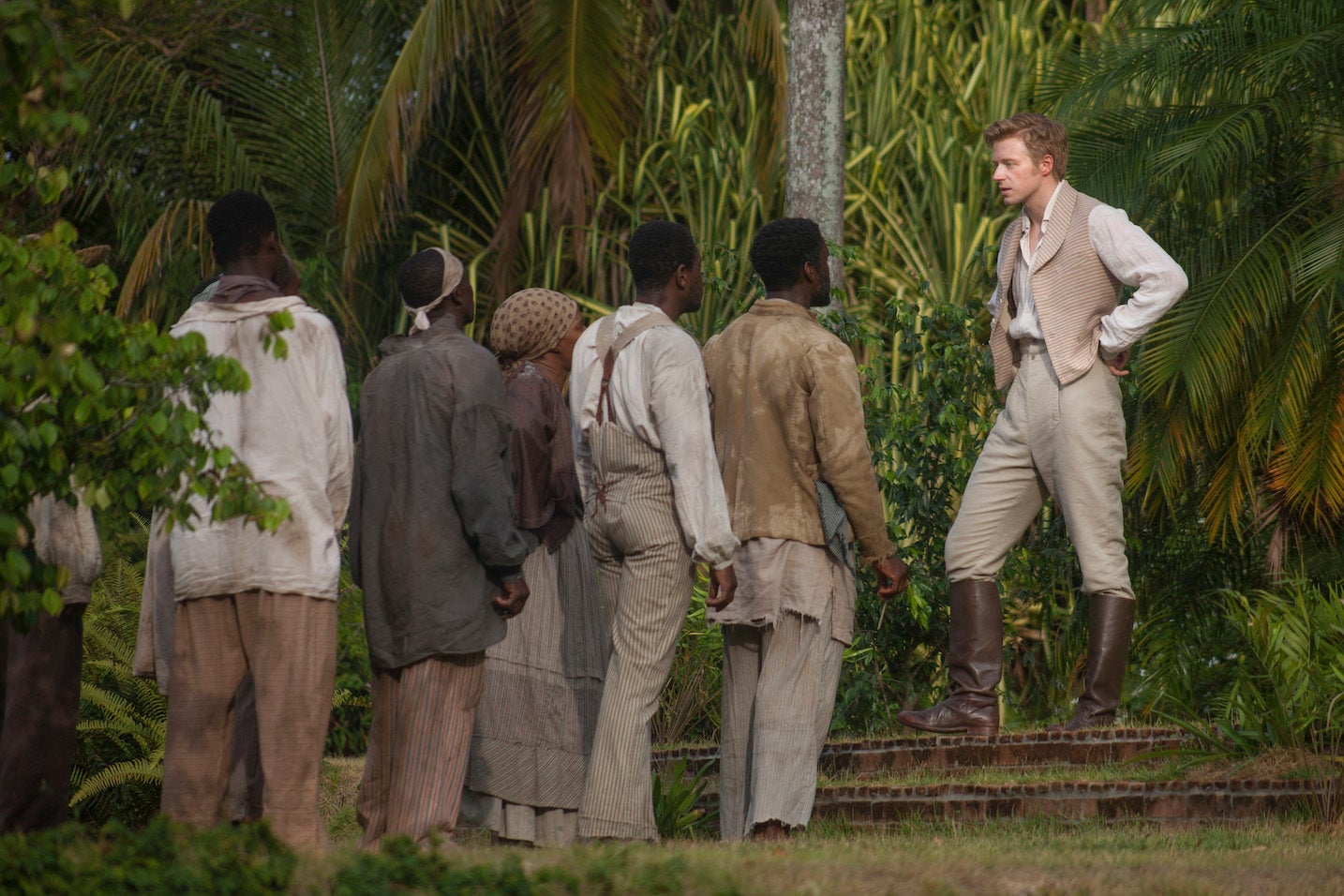
Back at the village, the workers decide to strike - no work and no rent paid until Goodwin sees reason. For three days they stay away from the fields. Robert descends into a sleepless madness, and with baby Emily crying continually, the entire household is on edge.
The master raises the stakes by ordering his overseers to issue a “warning.” Distraught with worry, Caroline pleads with July to sit with her. She blathers on about how Negroes can’t be reasoned with. Meanwhile, Robert and his henchmen terrorize the village and destroy the workers’ homes.
When Robert finally returns, he says the workers have agreed to his terms and will begin harvesting tomorrow. Caroline fusses over him and sees he is injured. July ignores Caroline when she orders “Marguerite” to bring some water. But then Robert admonishes July for failing to obey her mistress, referring to her by her slave name as well.
The next morning the workers fail to report to the fields. They have abandoned their village and left the plantation altogether. July finds Robert in a frenzy, attempting to cut the sugarcane on his own. As July tries to calm him, Robert takes her by her throat and threatens her with his machete. Caroline comes to the rescue, Robert drops the knife and falls to the ground sobbing. So much for July’s sweet, true husband.
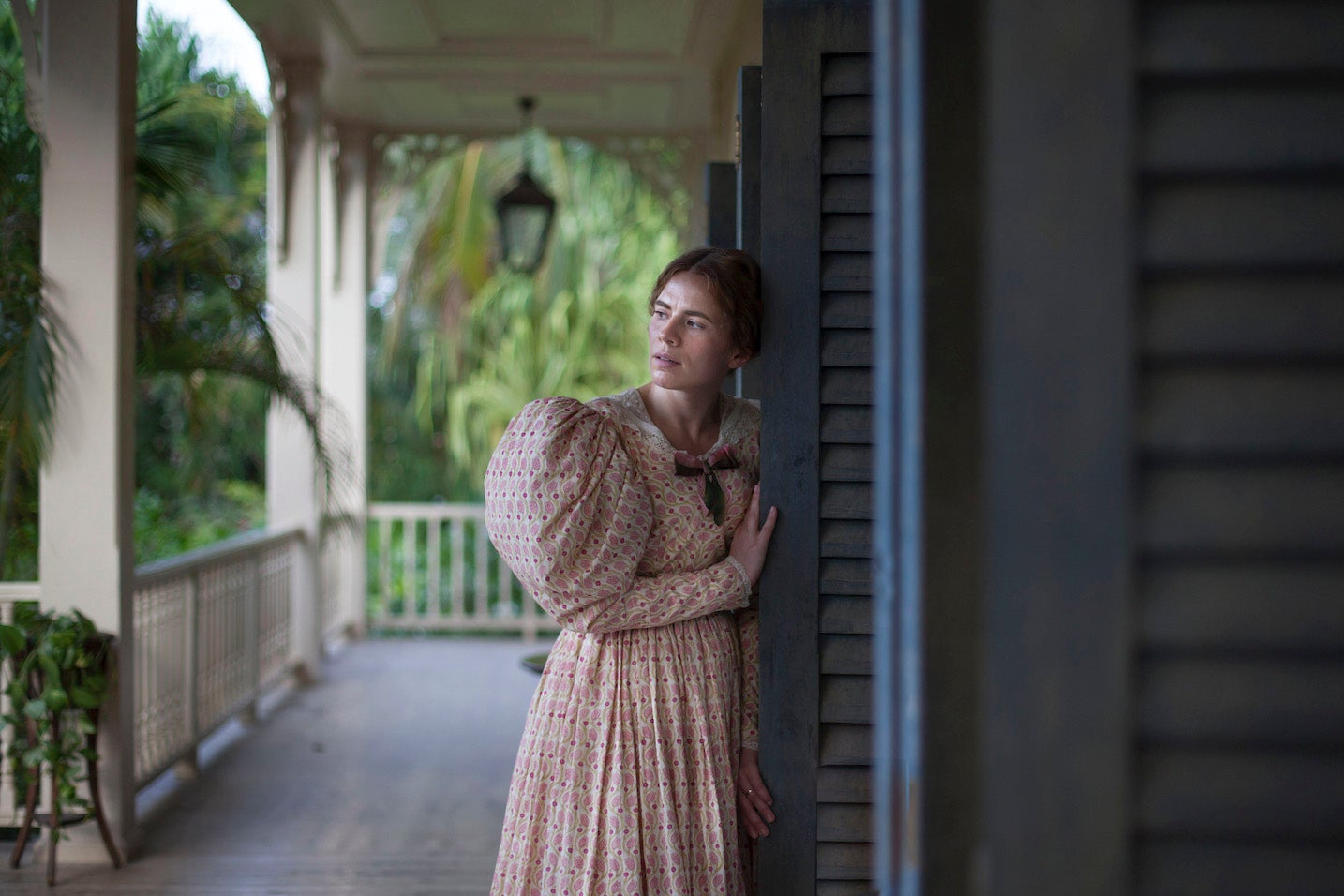
Back at the house, Robert takes to his bed, unable to speak or even take water. Caroline refuses to let July see him, but when he hears his baby daughter crying, Robert speaks her name. He responds well to the child, so she’s brought to him (without her mother) for a little while each day. Caroline informs July that as soon as her husband is strong enough, they will leave the island.
That night July can hear Robert and Caroline finally consummate their marriage. Unable to deny that her lover has completely turned from her, July exacts her revenge by sending Elias into the dining room to serve Robert a tureen of live cockroaches.
As the Goodwins prepare to leave, Robert makes sure July overhears his order that she be kept at a distance until they have departed. As the carriage pulls away, Molly generously offers to take Emily for some fresh milk. (July probably should have been wary since she’d often been less than friendly to Molly.) As July drifts off in the hammock, she dreams of Emily and Robert. When she startles awake, she discovers that the Goodwins have already set sail for England, and Molly and Emily are with them. July is understandably devasted.
After leaving the plantation, July goes in search of the free Negroes' new settlement where she is taken in and nursed back to health. But their fledgling village suffers many adversities – flood, drought, earthquakes, yellow fever, and starvation. Eventually, July is one of the few survivors left there.
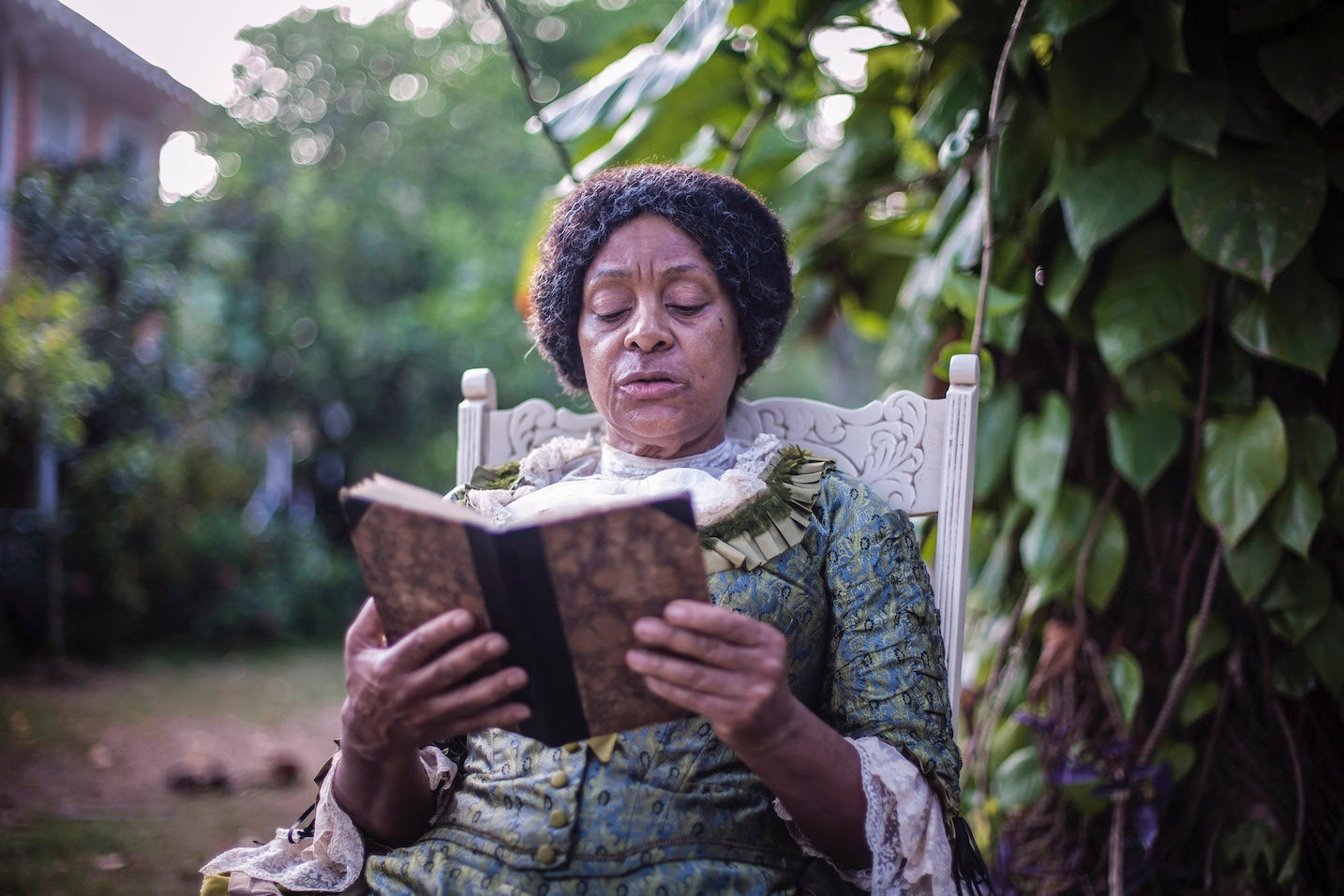
Finally, we see Old July (Dona Croll) being brought into court for stealing a chicken. Without evidence to prove the theft, the irritable judge releases her, but July grumbles about the loss of her hen. A polite stranger named Thomas Kinsman (Arinze Kene) approaches her outside the courtroom and asks to take her home for a meal. He tells her about being raised in London and apprenticed to a printer. He has a fine house, a wife, and children. July is hungry and not interested in his story until he reveals that he is the baby boy she left on steps of the Baptist church all those years ago.
Since then, July has lived with Thomas and his family. He asked her to write down her story (her long song, if you will) and published it. She wonders where Emily is and if her book will ever reach her daughter one day. She also hopes that the stories of the others from the plantation will never be forgotten.
So what did you think of July’s journey and the way she told her own story? The losses and indignities she suffered were unimaginable, but her spirit and tenacity are universal. Share your thoughts on the characters, what you learned about the era, or anything else that bothered or inspired you in the comments!



